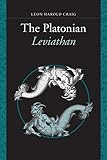The Platonian Leviathan / Leon Harold Craig.
Material type: TextPublisher: Toronto : University of Toronto Press, [2010]Copyright date: ©2009Description: 1 online resource (704 p.)Content type:
TextPublisher: Toronto : University of Toronto Press, [2010]Copyright date: ©2009Description: 1 online resource (704 p.)Content type: - 9781442616004
- 9781442686496
- 184
- B1247 .C69 2010eb
- online - DeGruyter
| Item type | Current library | Call number | URL | Status | Notes | Barcode | |
|---|---|---|---|---|---|---|---|
 eBook
eBook
|
Biblioteca "Angelicum" Pont. Univ. S.Tommaso d'Aquino Nuvola online | online - DeGruyter (Browse shelf(Opens below)) | Online access | Not for loan (Accesso limitato) | Accesso per gli utenti autorizzati / Access for authorized users | (dgr)9781442686496 |
Browsing Biblioteca "Angelicum" Pont. Univ. S.Tommaso d'Aquino shelves, Shelving location: Nuvola online Close shelf browser (Hides shelf browser)

|

|

|

|

|

|

|
||
| online - DeGruyter The Space of the Book : Print Culture in the Russian Social Imagination / | online - DeGruyter Editors, Scholars, and the Social Text / | online - DeGruyter Eating Chinese : Chinese Restaurants and Diaspora / | online - DeGruyter The Platonian Leviathan / | online - DeGruyter A.M. Klein The Letters : Collected Works of A.M. Klein / | online - DeGruyter Subject Stages : Marriage, Theatre and the Law in Early Modern Spain / | online - DeGruyter By Himself : The Older Man's Experience of Widowhood / |
restricted access online access with authorization star
http://purl.org/coar/access_right/c_16ec
Thomas Hobbes's influential political treatise, Leviathan, was first published in 1651. Many scholars have since credited him with a mechanistic outlook towards human nature that established the basis of modern Western political philosophy from the perspective of social contract theory. In The Platonian Leviathan, Leon Harold Craig weaves together philosophy, political science, and literature to offer a radical re-interpretation of Hobbes's most famous work.Though Craig begins and concludes his analysis with discussions of Herman Melville's Moby-Dick and includes an essay on Joseph Conrad's Heart of Darkness, the bulk of his two-part commentary centres on Leviathan. Part One shows the overt principles of Hobbes's political prescription to be untenable, and strongly suggests that Hobbes himself did not subscribe to these rules, using them only as tools to further his philosophical goals. In Part Two, Craig displays the underlying Platonism of Hobbes's thinking. Sure to be controversial, The Platonian Leviathan may nonetheless re-orient the future direction of Hobbes scholarship.
Mode of access: Internet via World Wide Web.
In English.
Description based on online resource; title from PDF title page (publisher's Web site, viewed 01. Nov 2023)


